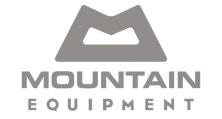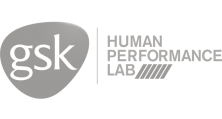Tracking
the Journey
-
Distance to go:
0 Mi
Distance
Ben and Tarka will cover 1800 miles starting from Scott's Terra Nova Hut at the edge of Antarctica to the South Pole and back to the coast again. That's equivalent to 69 back-to-back marathons hauling up to 200kg each (the weight of roughly two adult men) of kit and supplies necessary to survive.
Distances here are shown in statute miles.
Resupply (Day 70)

I'm sorry to have kept you waiting for this update; you might have seen from the tracker that we haven't moved for a while, and you may be wondering what's up. For more than a decade I've been trying to get to the start line of this expedition, and for more than a decade I've been talking about how it would be a journey that was at the very limits of human endurance. Today, in hindsight, I wonder if I really appreciated how prescient and accurate that glib statement was, and yet how little I knew about where that journey would lead me, and what it would take for Tarka and me to dig so deep.
Part of the appeal of this expedition to me was that it seemed just about possible. Roger Mear, one of Robert Swan's team that completed Scott's one-way journey to the Pole in the mid-eighties said they didn't entertain the thought of unsupported return journey as it was plainly "impossible" to haul enough food and fuel. Both Scott and Shackleton, of course, had pre-positioned depots the year before their Pole attempts, and then had further teams hauling provisions for them all the way to the Plateau, peeling away one by one like booster rockets falling back to earth. Scott himself didn't put his own sledge harness on until he got to the base of the Beardmore Glacier, and at most his men pulled just over 90kg each.
By contrast, Tarka and I pulled 200kg each at the start, heavier loads per man than Scott's weakest two ponies each dragged. Peter McDowell, one of the senior directors of ALE, described it as "Fifty percent harder" than anything he had seen in his time supporting Antarctic expeditions. We gambled on getting faster as our loads lightened, and based on our training and experience, Tarka and I had secretly set ourselves the goal of covering 42km -a full marathon- per day on our return from the Pole to the Beardmore. We planned our food and fuel to match, going light and -we hoped- fast, with almost no leeway for error or a let-up in pace. This is why we did such a big day to turn at the Pole, and why we've had no time to rest properly since. We had two-and-a-half hours' sleep on our Pole day, and haven't had more than five hour's sleep for nearly two months. Our only full rest day was 55 days ago. The toll this effort has taken has been quite something, and the speed we hoped for never came.
Our near-empty sledges still felt heavy and the energy that carried us up the Beardmore, and indeed to the Pole itself in record time despite dragging more than anyone in history, started to wane dramatically in the last few days. What's more, we've been running lower on food as we failed to meet our mileage targets. Six days ago we started to eat half rations, and I've felt shattered every day since, aware that I was depleting my body at a rate that might have been reckless. My stomach growled permanently, my ribs became more prominent by the day, my legs were painfully weak and my mind and thoughts and decision-making grew foggy and dim. On our second day of half-rations I got dangerously cold when I had to remove my outer jacket in the middle of a storm to add more insulating layers, and it was only Tarka's help -zipping up my jackets like I was a toddler while my cold hands hung useless by my side- that got me out of trouble and through a very dark day indeed.
I've been reluctant to say so (sorry mum!) but we've both been on the ragged edge for a while now, and on New Year's Eve, we set out on what was to prove the hardest day of the expedition. It was Tarka's turn this time to struggle, and I'd reached a state where I was barely able to realise it. The windchill was -45 degrees centigrade when I recorded it, and we stayed outside for more than 13 hours, on fifty percent of the food I'd intended and wearing almost all the clothes we had with us. At breaks we would eat halved energy bars and our normally-sweet drinks tasted like lukewarm dishwater with a hint of lemon. Towards the eighth or ninth hour Tarka's normally rock-steady metronomic pace started to become erratic and he seemed to stagger and stumble more than usual on ridges and divots in the snow surface. He stopped mid-session, in a howling blizzard, to remove his outer gilet (the Primaloft-insulated Mountain Equipment Compressor vests that have served us so well here) and flipped back his hood as if he were too hot. I know -as a professional leader of expeditions to the coldest places on the planet- that these are tell-tale signs of hypothermia, yet I was on the limit myself and failed to react. All I can remember from that afternoon that drifted into evening, with the dim sun slowly wheeling around us and the horizon erasing itself and reappearing again in the whirling fog of spindrift, was being unable to think of anything more than the battle raging in my head against the part of me that wanted so desperately to stop. Just to lean my shoulders on my ski poles and slump forwards against the resistance of my harness and rest, and to hell with the consequences. I wondered at times if I fell over whether I'd have the strength to stand up again, the energy to yell for Tarka, or whether he'd even notice me calling over the noise of the wind.
When I took over the lead I kept turning back to see Tarka -normally right on my heels- drifting further behind me. I stopped a few times to let him catch up, but it was too cold for me to wait for more than a minute or two before I started shivering, so I raised a single ski pole, he raised his in reply -a signal we've often used here- and I shuffled on. After doing this a few times, with Tarka receding as if the horizon was sucking him backward like quicksand, he stopped raising his pole. I waited, but by now he was a tiny dark speck in the white that took forever to grow. I unclipped my harness and started to put the tent up, feeling dizzy and breathless myself, and taking what seemed like ages to match the poles to their corresponding fabric sleeves, like a drunk taking some sort of coordination test. "Sorry I'm late", said Tarka as he arrived, but it sounded like someone else entirely, his words mumbled and slow.
As we finished slowly setting up camp, I saw he was fumbling in his giant outer mittens with the plastic buckles that strap our sledges closed. "I can't feel my hands", he said through a mask encrusted with ice, his shoulders slumped forwards. As we zipped ourselves into the porch of the tent to take our boots and outer layers off before climbing into our sleeping bags, we saw that the tips of his thumbs were at least badly frostnipped, if not lost entirely to frostbite. I remember feeling a mixture of fear and anger, both at him and at myself for letting this happen. I pulled up my jacket and fleece so he could warm his hands in my armpits, and to my relief the colour and circulation started to return. We ate our watery half-dinners in near-silence and fell asleep exhausted and cold, knowing we would have to match the same distance the next day.
Our depot was still 74km away and we had barely more than half a day's food to reach it; eight energy bars each, half a breakfast and half an evening meal. 16km into the following day Tarka started to slow again as he led, before stopping entirely and waving me forward to talk. "I feel really weak in the legs again", he said. "OK. What do you want to do?" I answered snappily, before realising this was on me. I came here to be challenged and tested, to give my all to the hardest task I have ever set myself and to the biggest dream I have ever had. And here was the crux. This was the moment that mattered, not standing by the Pole having my photograph taken, but standing next to my friend, in a howling gale, miles away from anyone or anything. "Let's put the tent up", I said, "I've got an idea".
My idea was to call for a resupply. To have more food and fuel flown to our position so that we could rest and recover before finishing this journey. A decision that changes the status of this expedition from "unsupported" or "unassisted" or whatever semantics you wish to choose to the opposite. Part of me also feels it inevitable that we and this journey would face critics even if we'd done it in period clothing eating pemmican and pony meat. Yet in an instant I realised that my and Tarka's lives are not something I wanted to gamble with, and that we had given our all. We were lucky that neither of us had collapsed the day before, and I knew we couldn't possibly have hoped to recover on our meagre rations from the physical holes we'd dug ourselves into.
At the other end of the world, on the other end of a crackling and hissing satellite phone line, our expedition manager Andy Ward sprang into action, and things happened incredibly quickly, with a ski-plane carrying eight days' of rations landing twelve hours later. The weather worsened as we waited and I feared the flight would be aborted, or that a bag would be air-dropped at speed and lost in the blizzard, but in a beautiful twist of what some might call fate, the pilot was Troy, the same man that picked me up from the Arctic Ocean after my 72-day solo expedition nearly ten years ago, and in my eyes the finest polar pilot in the world. The Twin Otter appeared through a tiny hole in the rolling cloud and swang over us once before landing on the ridged and uneven snow surface and taxiing right up to our tent, its wing-tip almost above our roof. The wind was still blasting and the plane's skis were almost hidden under the blowing snow. "I'm sorry about the weather", I said to Troy, amazed that he'd been able to land. "Oh, it was fine", he replied modestly.
The hours we spent waiting were, I fear, dark ones for Tarka. He seemed a broken man. "It'll look like my fault", he said, "and that's a good thing for you." This was Tarka through and through. Weeks ago he said humbly, "If there are media at the airport when we get back, I'm happy to help with the bags while you talk to them." He finally admitted last night that when I was struggling (and if I'm honest now, on the verge of wanting to quit) a few weeks ago he'd taken food bags from my sledge while I was in the tent to help lighten my load without telling me, so he'd been pulling more weight than me for weeks.
Tarka is the hero here, and the irony of our situation is that I would never have made it to this point without his herculean efforts; his giving everything he has to this goal. I'm proud of how deep we have each dug, and I am amazed and humbled by Tarka's sacrifice. He has pushed (or indeed pulled) himself until he dropped, and I'm also as exhausted as I've ever been. For weeks now I have slept fitfully and woken up cold. We are both alarmingly lean, and we have both struggled for a while to maintain trains of thought or decent conversations. I suspect my writing has been going downhill too.
And now we are lying here resting, like two new men after ten hours' sleep, full-bellied and warm again for the first time in weeks, before we move north again to complete this unfinished journey. Our status has changed, but how little that means to me now. Scott didn't wear his harness until the Beardmore and would have been "supported" in modern polar parlance. I don't think we made any mistakes, and I don't think we could have done anything more, or pulled any more food up here. We travelled 5.6km per day at the start with 200kg per man, greater loads than each of Scott's weakest ponies hauled.
I know a few commentators have suggested that we've been "lucky" with weather and surface compared to a century ago, but I don't believe this is true. Our luck is in having GPS units that allow us to ski blind into whiteouts, in having synthetic skins on our skis that allow us to grip, and in having the nutrition and fitness and clothing to survive dragging loads that would have been unthinkable in that era. We have had no choice but to move every day, whatever the weather, for more than 70 hours per week of intense physical exertion, twice as much as a Tour de France cyclist, over ten weeks and not three.
Now my head is clearer and my body is recovering, I think of status and records and achievement and impermanence. Every gold medal one day ends up in a collectors' cabinet, an auction lot or a drawer in an antique shop. Trophies oxidise, the ribbons of rosettes curl and fade. I don't know where my proudly-won Scout badges are now. I hope our journey has not been diminished in your eyes now it is "imperfect". Yet of course for us humans, perfection can never really be reached, contentment is either here today, with the striving and the mess we all inhabit, all open loops and half-finished lists and could-do-better-next-times, or we will never find it. And the biggest lessons -to me at least- of this very long, very hard walk, are perhaps that compassion is more important than glory. Friendship and kindness and taking care of each other -like Tarka secretly removing weight from my sledge- matter more than achievement or status. The joy of being outdoors and alive in the wild, pushing ourselves harder than anyone will ever understand, will I think in time prove more wholesome and satisfying than the pride of any public recognition on our homecoming.
We're resting up today, we're safe, we're well, we'll do a shorter day north towards our mid-plateau depot tomorrow and we'll carry on home from there, retracing our steps to Ross Island. We're still in the process of making a journey that's never been done before, and I hope you'll still keep following. Tarka and I are humbled and grateful for your interest and support, and I am more thankful than I know how to say for Intel and Land Rover and all of our other partners for standing by us in our most trying days. Onwards.










Comments
# CaninesCashews, January 4th 2014
I forget where I heard this but I always remember it… seems fitting.
“Glance backward, look heavenward, reach outward, press onward”
Gav
# Patty, January 4th 2014
May God bless you.
I, for one, follow along with your journey because you’re quite clearly very decent human beings trying something spectacular, not because of what some record book might say about the status of your mission. That you are willing to share the tough parts in all humility is truly amazing. This post in particular; wow. For those of us who want to live our lives Trying with a capital “T,” the setbacks you’ve experienced and the accomplishments you’ve made, all these stories you’re telling us are of immense value. You inspire us; you remind us what Trying really means.
Onward, and best wishes for the rest of the return journey.
# Andrea, January 4th 2014
At -30C the human organism perceives that he is frowsing , he senses himself like being traped, even when he is in move. The cells do not divide properly, still, the expedition it is necessary to move rapidly for survival causes and for a long time determined by the distance at witch is the South Pole, an effort excuted by the cells and their substances and this temperture can not be changed, not for a moment. The expedition is unsupported. (And in the history, is the least carriers user one.)
# Mike, January 4th 2014
Couldn´t care less about semantics in this case. Maybe you didn’t get the “perfect” expedition you might have wanted, but it sounds like you got something much better. Now, I would like to hug you both, starting with Tarka, for pulling the extra weight, unasked, and without a word. Take care, and thanks!
# Irene, January 4th 2014
Seriously, Ben? How could you even think to chastise yourself. We are all so in awe of what you’ve already done. On on, hindsight is 20:20 and you have learned much for all. Let’s see you finish this thing good.
# George Chapman, January 4th 2014
A good day on the blogs. There has been 252 comments including reply’s on this blog as of 10:57PM EST. Glad to see all the interest and concern for the guy’s on the ice.
# George Chapman, January 4th 2014
One correction. That total of 252 does not include my post and reply’s which would be about 15 which would bring that total to about 267
# Sharon Hartley , January 4th 2014
This brought tears to my eyes. I’ve recently been reading a number of books that share some immensely courageous and inspirational acts and this is up there with them.
Keep up the great work. Leadership, teamwork, bravery and mental toughness will bring you home safely.
Continue to be Enapay.
Safe travels.
Sharon
# Paulo Butchart, January 4th 2014
La emoción que siento al leer el post de hoy es gigantesca. Realmente este acontecimiento lo que hace es dar “realidad” a la expedición, y ponernos en contexto sobre el gran riesgo y dificultad de la misma a todos nosotros que los seguimos cómodamente desde un sillón en algún lugar seguro.
Continuaremos siguiéndolos desde México con el mayor de los intereses y emoción!
Gracias Ben y Tarka, verdaderos héroes!
# Dambara Begley, January 4th 2014
Guys, the measure of a man is exactly those qualities you expressed in this post. It’s the most human, heartful and heroically inspiring of the entire trip. Tears of joy filled my eyes throughout!... and I’m only one of a crowd of dewey-eyed followers and supporters. Bless you, thank you, and keep safe, healthy, and writing!
# Levi Bianco, January 4th 2014
Guys, that was one of the most inspiring pieces of writing I have ever read; despite it’s content and the obvious emotion in it, that has raised my spirits and my faith in human endurance further than any ’ polar literature’ I have ever read.
Such an immense change, an epic undertaking is something people like myself strive to have the strength and drive to achieve one day; the presence of such humility in the face of a decision in awe inspiring, and it has been an honor to be able to follow your adventure so far and share a miniscule portion of your experience!
Easy to say of course, but there are so many people behind you here, so much unwavering support that I feel you should not fear the sting of any critics upon your successful return; those who don’t understand are those who will never understand.
I wish you all the best, to try and find a little more Herculean strength to enjoy those last kilometres, and to try to drink it all in; it’s all downhill From here (I hope that’s correct!) and a hard earned hero’s welcome awaits you!
For me, an English outdoor Instructor working hard on his Winter Mountain Leader in Scotland, all of life’s every day trivialities will cease to be quite the burdens they so often can be, and it’ll be that bit easier to put things into perspective. The next time I find myself out battling through weather and whiteout, I shall think of your achievements and dig that bit deeper.
Thankyou, and good luck!
Levi Bianco
# Andrew Wardlaw, January 4th 2014
I’m not sure words can describe the complete respect and awe I have for both of you right now. As said in other comments, life is the most precious of things and gambling with it is not something that should be done. You made the right call at the right time, pushing yourselves to the limits until you couldn’t push any more. In no way shape or form does that decision diminish what you have achieved so far or what you will have achieved when you finish the expedition.
My hat is off to you Ben and Tarka, I’m so pleased to hear you are both safe and now refuelled. Godspeed to you both.
# Joann, January 4th 2014
I am so moved by your journey. The sacrifice one friend will make for another illustrates the beauty of humanity. In the absence of others- when no one is watching we do what is right for one another. I have been through war and escaped during the civil war in Liberia years ago. This story reminds me that people in dire situations can still act with compassion. You both followed your heart and were guided by humility here. I am so glad you reached out for help. At first when I heard of your journey I did not understand it. I told my husband -I made it through war how can anyone willingly subject themselves to such conditions. Now I see- through your journey I am reminded of the valuable lessons that can be learned from such exposure. You appreciate life more than others. You live for a cup of coffee- safety- etc. These are things you know you can live without- because you did it. I am reminded more of “the real stuff of life"the friendships- and importance of our humanity- thank you again for your journey.